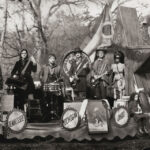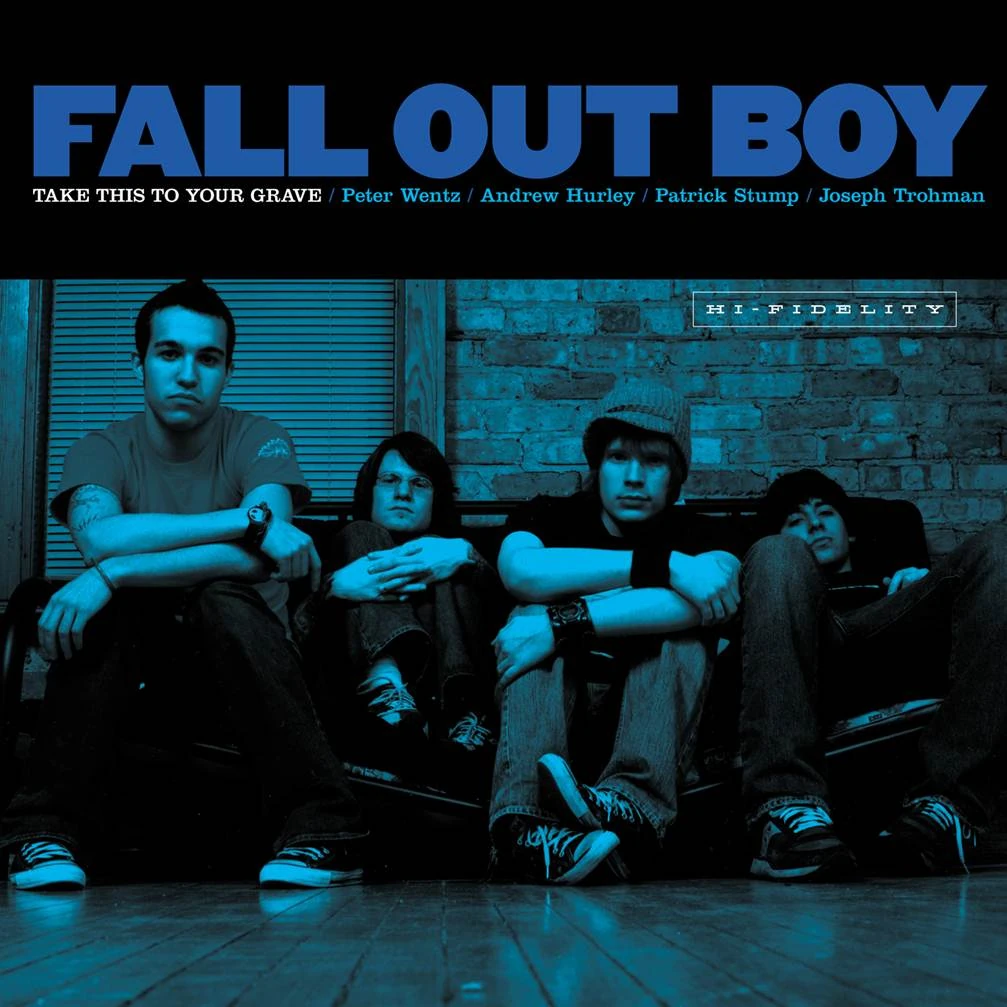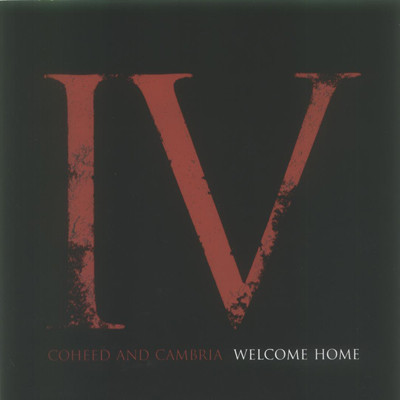 Few modern rock songs capture narrative ambition, musical intensity, and cinematic storytelling quite like The Raconteurs’ “Carolina Drama.” Released in 2008 as part of their critically acclaimed album Consolers of the Lonely, the track is an ambitious 8-minute-plus saga that combines Southern gothic themes with hard-hitting garage rock instrumentation. With its sprawling narrative, dynamic musical shifts, and compelling performances from Jack White, Brendan Benson, and the rest of the band, “Carolina Drama” stands as one of the Raconteurs’ most remarkable achievements—a song that defies conventional rock song structures while immersing listeners in a vivid tale of love, betrayal, and murder.
Few modern rock songs capture narrative ambition, musical intensity, and cinematic storytelling quite like The Raconteurs’ “Carolina Drama.” Released in 2008 as part of their critically acclaimed album Consolers of the Lonely, the track is an ambitious 8-minute-plus saga that combines Southern gothic themes with hard-hitting garage rock instrumentation. With its sprawling narrative, dynamic musical shifts, and compelling performances from Jack White, Brendan Benson, and the rest of the band, “Carolina Drama” stands as one of the Raconteurs’ most remarkable achievements—a song that defies conventional rock song structures while immersing listeners in a vivid tale of love, betrayal, and murder.
This article explores the story, musical composition, lyrical depth, and cultural impact of “Carolina Drama,” highlighting why it is both a standout track in The Raconteurs’ catalog and a modern classic of narrative rock.
The Raconteurs: Garage Rock Storytellers
Formed in Detroit in 2005, The Raconteurs brought together Jack White, Brendan Benson, Jack Lawrence, and Patrick Keeler to create a band that balanced raw rock energy with melodic craftsmanship and narrative ambition. Unlike White’s work with The White Stripes, The Raconteurs emphasized collaborative songwriting and expanded instrumentation, allowing for a broader palette of sounds and textures.
Consolers of the Lonely, their 2008 sophomore album, showcased this collaborative approach. The album is noted for its eclectic mix of blues, garage rock, and balladry, as well as its thematic exploration of human emotion and storytelling. “Carolina Drama” serves as the album’s centerpiece, both in terms of length and narrative scope, embodying the band’s willingness to push rock music into cinematic territory.
Writing and Narrative Structure
“Carolina Drama” is, at its core, a story song. Written by Jack White and Brendan Benson, it unfolds like a Southern gothic novella set to music. The lyrics tell the story of a young woman from North Carolina who faces love, betrayal, and ultimately violence, with the narrative shifting between her perspective and the external consequences of her choices.
The song’s narrative is stark and dramatic. It opens with a warning from the mother, a narrative voice that frames the tragic tale:
“Well, her mother warned her about the boys
But you know that’s just how it goes”
From there, the story escalates quickly: a doomed romance, the birth of a child, and a fatal confrontation with a jealous lover. The song reads like a modern Southern gothic story, blending romance, tragedy, and moral ambiguity. The lyrics are vivid and cinematic, using dialogue, internal reflection, and ominous foreshadowing to draw listeners into the narrative world.
Musical Composition and Style
Musically, “Carolina Drama” is as dynamic as its story. The track opens with a subdued, almost ballad-like acoustic introduction, featuring minimal instrumentation that emphasizes the narrative and draws listeners into the drama. As the song progresses, the music escalates in intensity, reflecting the increasing tension and stakes within the story.
Electric guitars, bass, and drums gradually enter, building momentum and creating a sense of urgency. Jack White’s distinctive guitar tone—raw, twangy, and emotionally charged—drives the song’s climactic moments, while Brendan Benson’s melodic sensibilities provide harmonic depth. The band masterfully navigates shifts in tempo and dynamics, moving seamlessly from introspective verses to explosive choruses, mirroring the story’s emotional peaks and valleys.
Lyrics and Thematic Depth
The lyrics of “Carolina Drama” are remarkable for their attention to detail, narrative clarity, and thematic richness. The song explores themes of love, betrayal, revenge, and morality, all set against a Southern backdrop that evokes both charm and menace.
The central character’s journey—from innocent romance to tragic confrontation—offers commentary on the consequences of desire and the inevitability of human flaws. Lines such as:
“She married a man who could love her no more
And her baby cried out on the floor”
capture the intersection of personal tragedy and broader moral themes, emphasizing the song’s darkly realistic yet mythic tone. The narrative’s stark realism is balanced by lyrical melodrama, creating a story that feels simultaneously grounded and larger-than-life.
Release and Reception
Released as part of Consolers of the Lonely in March 2008, “Carolina Drama” was not a conventional single due to its length and narrative complexity, yet it quickly became a fan favorite and critical standout. Reviewers praised the track for its ambitious storytelling, intricate composition, and the band’s ability to create tension and drama through music.
While radio play was limited because of the song’s duration, its reputation grew through live performances, critical acclaim, and word-of-mouth. Many critics have hailed it as one of the most compelling narrative songs of the 2000s, noting that it demonstrates The Raconteurs’ mastery of both storytelling and rock craftsmanship.
Live Performances and Theatricality
“Carolina Drama” has become a highlight of The Raconteurs’ live shows, where its dynamic shifts and dramatic narrative can be fully realized. On stage, the band uses crescendos, tempo changes, and instrumental interplay to bring the story to life, often drawing enthusiastic reactions from audiences who respond to both the music and the unfolding drama.
Jack White’s expressive vocals, combined with the band’s precise instrumentation, turn the song into a theatrical performance. The live experience emphasizes tension, release, and catharsis, allowing fans to experience the story not just as listeners but as participants in the narrative journey.
Musical Dynamics and Arrangement
The arrangement of “Carolina Drama” is notable for its cinematic qualities. The song begins almost as a folk ballad, with sparse instrumentation that highlights the lyrics and storytelling. As the narrative escalates, electric guitars, driving basslines, and dynamic drumming enter, creating a sense of momentum and suspense.
The interplay between White and Benson’s vocals adds depth, with harmonies and call-and-response sections reinforcing the story’s emotional intensity. Instrumental breaks, particularly the extended guitar solo, mirror narrative climaxes and heighten the song’s dramatic tension. This careful alignment of musical dynamics with storytelling is a defining feature of the track’s brilliance.
Southern Gothic Influence
The song’s narrative and aesthetic draw heavily from Southern gothic traditions, a literary and musical style characterized by moral ambiguity, tragic romance, and the haunting presence of the past. The setting—rural North Carolina—and the story of doomed love, parental warnings, and violent consequences evoke the genre’s signature mood.
By channeling Southern gothic themes, The Raconteurs created a song that feels both distinctly American and universally relatable. The cultural specificity of the setting, combined with universal themes of love, betrayal, and tragedy, gives the song its unique resonance and narrative power.
Cultural and Artistic Impact
Though not a mainstream commercial hit, “Carolina Drama” has had a lasting impact on fans, musicians, and critics. It exemplifies how rock music can function as narrative art, blending storytelling with musical sophistication. The song has been cited as a reference point for contemporary bands seeking to expand the boundaries of rock songcraft, demonstrating that a track can be both musically adventurous and narratively compelling.
Its influence extends beyond music; the song’s cinematic qualities have inspired discussions of adaptation, narrative songwriting, and the potential for rock music to tell complex stories in a single extended track.
Critical Reception and Legacy
Critics have consistently praised “Carolina Drama” for its ambition, craftsmanship, and emotional intensity. It is frequently cited as a standout track on Consolers of the Lonely and a highlight of The Raconteurs’ catalog. Many reviewers have noted the band’s ability to blend narrative sophistication with rock energy, creating a song that is both entertaining and artistically significant.
The track’s legacy is further cemented by its enduring popularity among fans. It has become a cult favorite, often featured in discussions of the most ambitious and cinematic songs in modern rock. Its reputation as a Southern gothic epic and a narrative masterpiece has only grown over time.
Narrative Storytelling in Rock Music
“Carolina Drama” exemplifies the power of narrative songwriting in rock music. By structuring the song like a short story, The Raconteurs demonstrate how music can convey character, plot, and emotion simultaneously. The use of musical dynamics, vocal interplay, and instrumental texture enhances the storytelling, allowing the song to operate on multiple levels.
This approach situates “Carolina Drama” within a tradition of narrative rock songs, alongside classics like Bruce Springsteen’s “Jungleland”, Bob Dylan’s “Hurricane”, and The Band’s “The Night They Drove Old Dixie Down”. The track shows that rock music can be more than riffs and hooks; it can be a vehicle for cinematic and literary expression.
Instrumentation and Technical Craftsmanship
From a technical perspective, “Carolina Drama” is a masterclass in arrangement and musicianship. Jack White’s guitar work is both emotive and precise, alternating between clean arpeggios and gritty power chords to mirror the narrative’s tension and release. Brendan Benson’s contributions, including vocal harmonies and melodic counterpoints, add depth and texture.
The rhythm section—Patrick Keeler on drums and Jack Lawrence on bass—provides a steady, dynamic foundation, guiding the song through tempo changes and dramatic shifts. The careful layering of instruments, dynamic contrast, and attention to sonic detail contribute to the song’s cinematic impact.
Themes of Love, Betrayal, and Morality
At its core, “Carolina Drama” is a story of human emotion. Themes of love, betrayal, parental warning, and moral consequence permeate the song. The narrative examines how choices and actions can lead to unforeseen consequences, reflecting the complexity of human relationships and morality.
The Southern gothic lens adds a layer of inevitability and fatalism, reinforcing the idea that personal flaws and societal pressures shape the course of events. By combining narrative depth with musical intensity, the song immerses listeners in a world that is both emotionally rich and dramatically compelling.
Cross-Generational Appeal
While rooted in garage rock and Southern gothic storytelling, “Carolina Drama” resonates with listeners across generations. Its compelling narrative, dynamic instrumentation, and emotional intensity appeal to both longtime rock fans and newer audiences discovering The Raconteurs’ catalog. The song demonstrates the enduring appeal of narrative-driven music, highlighting the power of story in connecting artists and listeners.
Conclusion
“Carolina Drama” by The Raconteurs is a landmark in narrative rock music. Its combination of Southern gothic storytelling, dynamic instrumentation, and emotive vocal performances creates a song that is both ambitious and accessible. Through its exploration of love, betrayal, and consequence, the track immerses listeners in a vivid, cinematic world while showcasing the band’s musical sophistication and collaborative artistry.
Over a decade after its release, “Carolina Drama” remains a defining track for The Raconteurs, celebrated for its narrative ambition, technical craftsmanship, and emotional resonance. It is a testament to the power of rock music to tell complex stories, evoke profound emotion, and transport listeners into a fully realized world of drama, tension, and catharsis. In every riff, lyric, and crescendo, the song exemplifies how modern rock can transcend traditional boundaries and become a timeless narrative epic.


